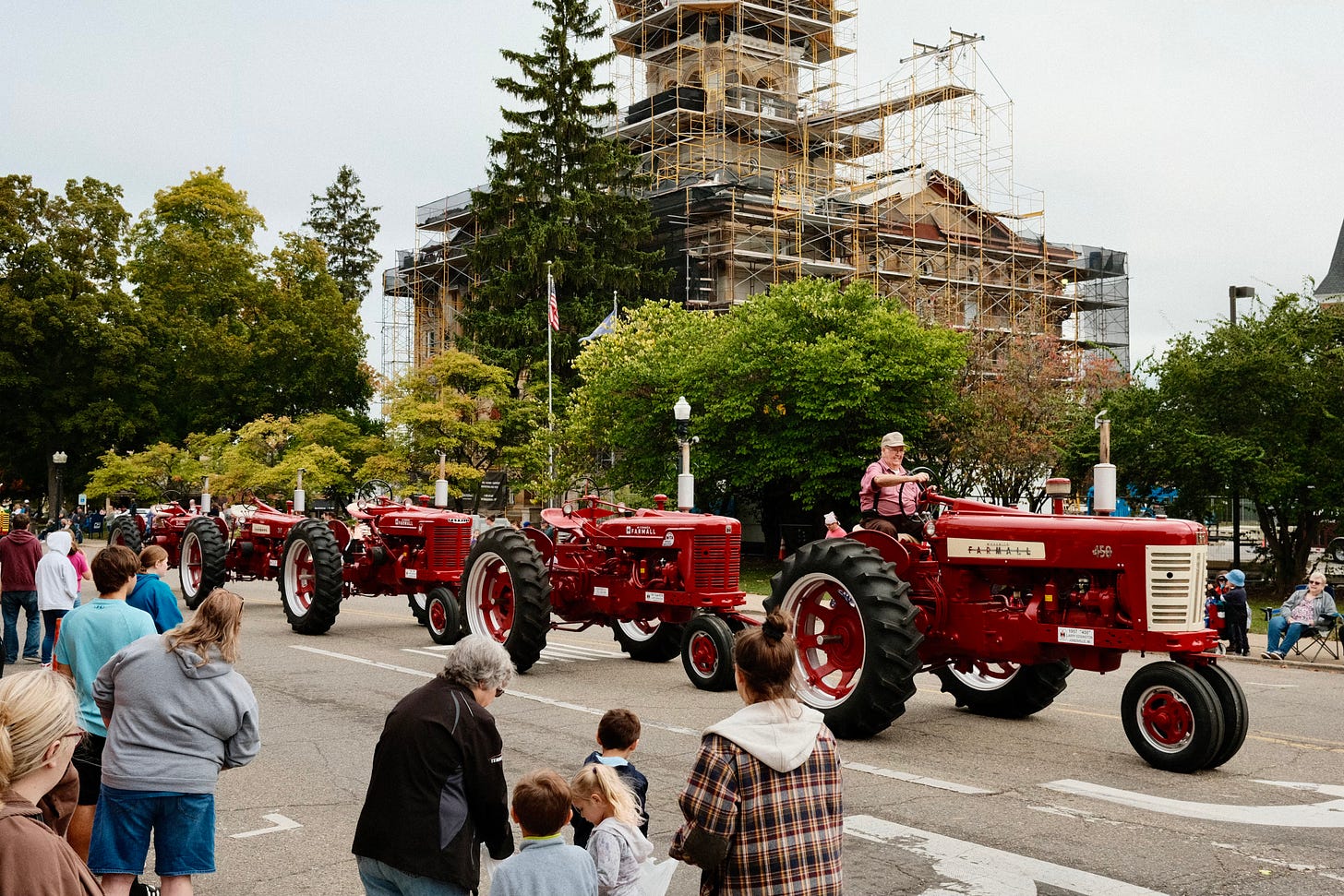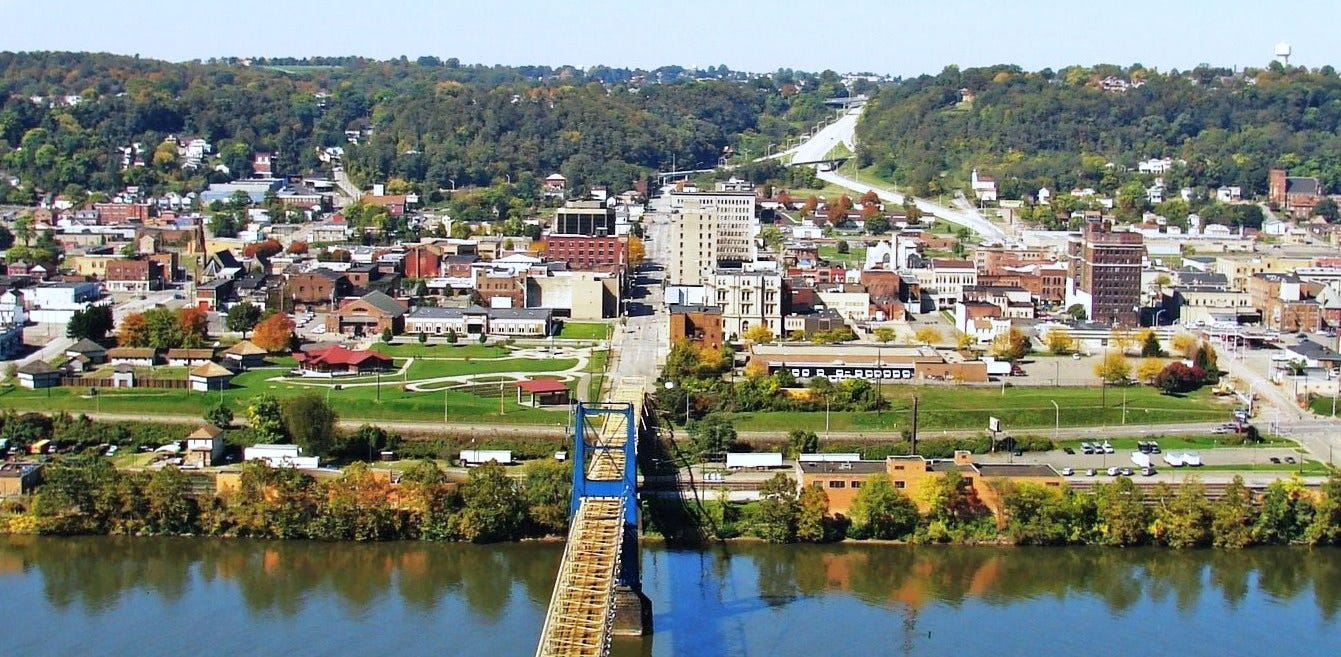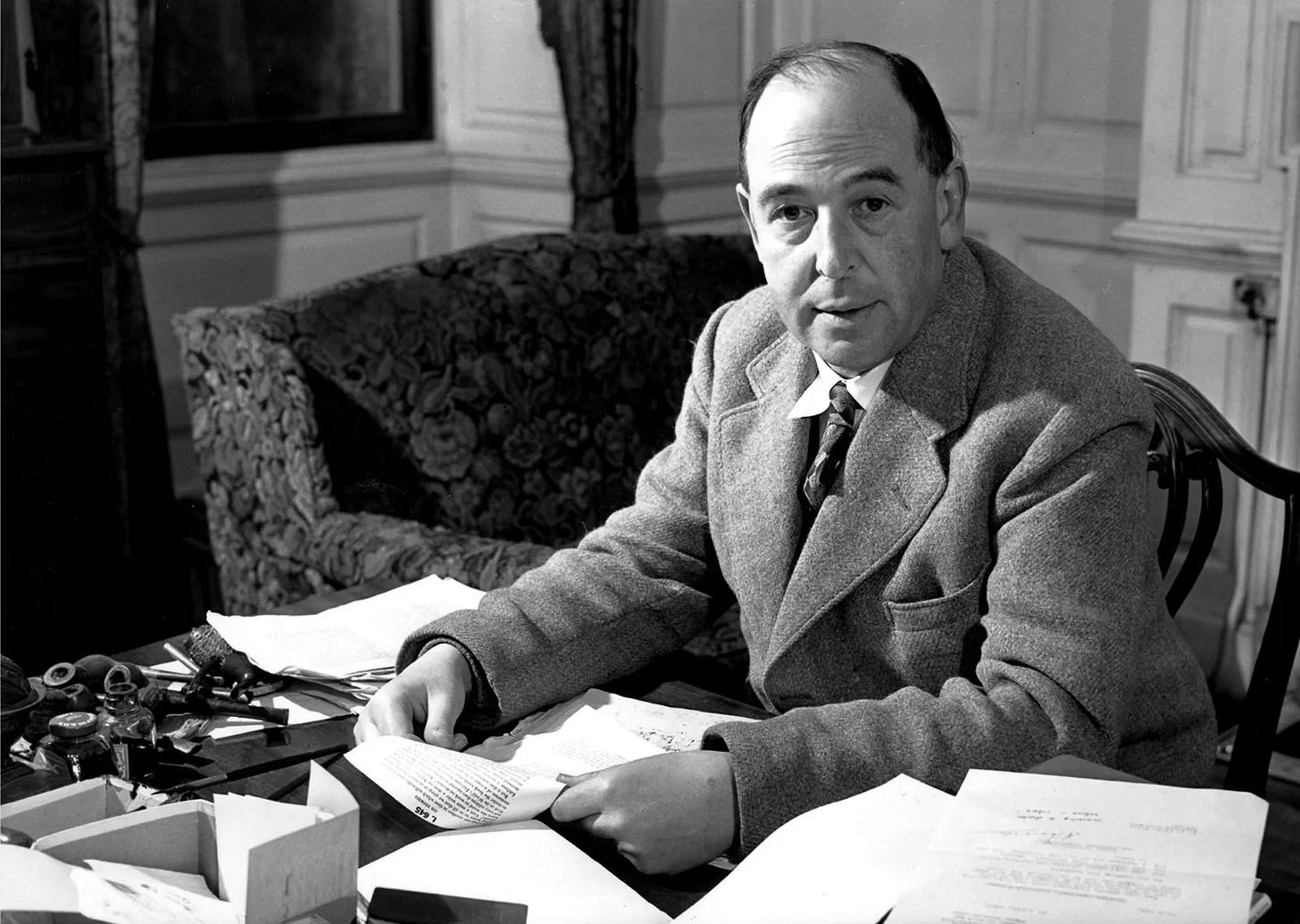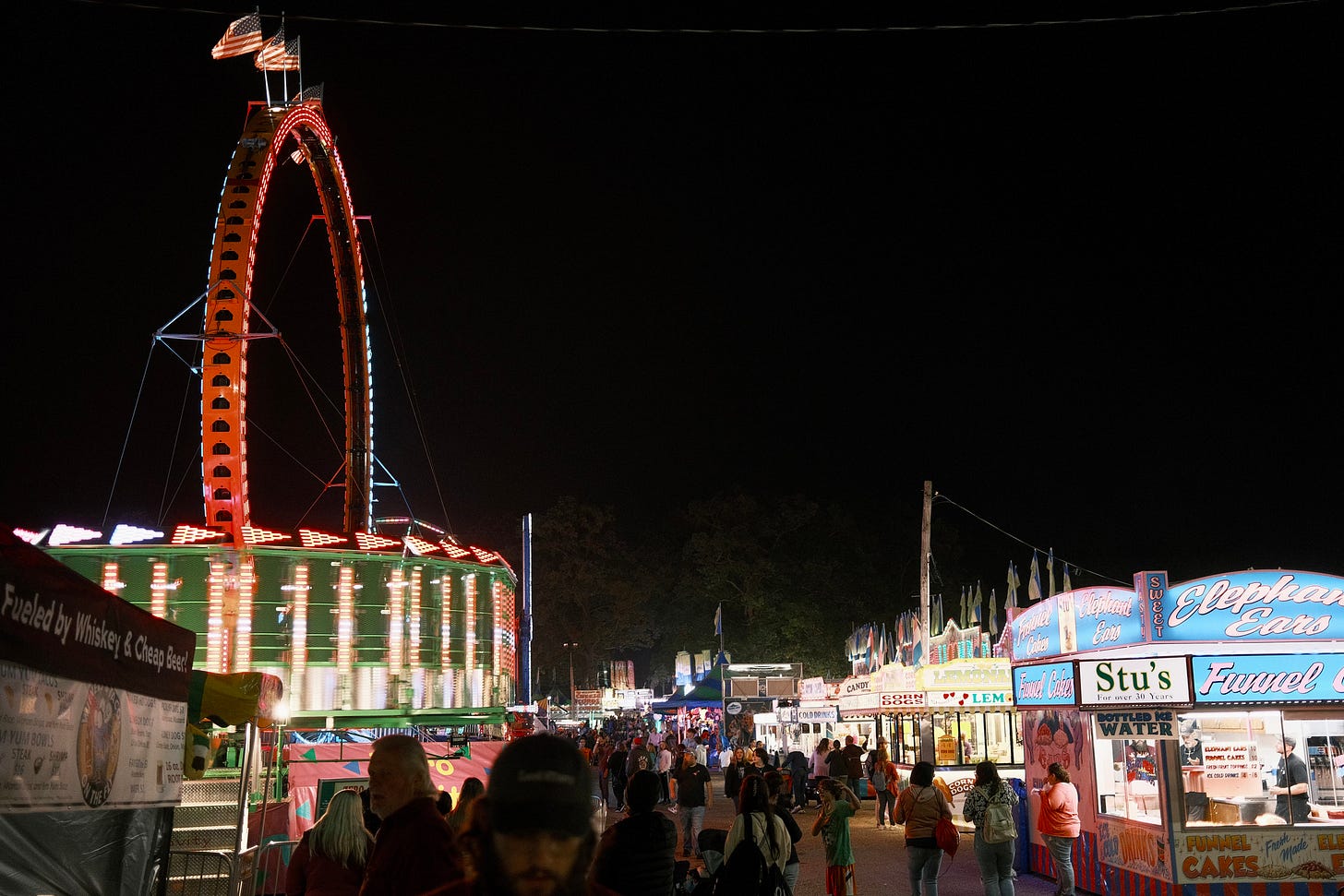Dear Boss,
Small towns across the country are pivoting to engender meaningful alternative communities. Prominent examples, which I have mentioned briefly in previous posts, are found in Steubenville, OH and Moscow, ID. Steubenville and Moscow have both found success in attracting families, both young and old, who are willing to engage in a serious shared civic life. If Hillsdale is to flourish, we must also draw in new blood that desires to lay down roots in our promising soil.
Steubenville and Moscow both have an advantage that makes them distinct from Hillsdale, however: they are both singularly religious communities. Steubenville is the home of Franciscan University, a conservative Catholic university. Franciscan’s presence has made it a draw for graduates to return, who in turn have invited other conservative Catholic families to join them. Similarly, the project in Moscow is pointedly Protestant and, more specifically, Calvinist. New St. Andrews College was founded there in 1994 by Doug Wilson and Christ Church, and Idaho currently stands as the most religious state in the Pacific Northwest, according to Pew Research Center. These religious and intellectual institutions have successfully captured the imaginations of many Christians who now believe that they can live a more fulfilled and worshipful life in these communities. These Christians then move to their new cities in small droves.
Hillsdale is not dissimilar from these towns. Hillsdale is also highly religious, especially amongst the college and college-adjacent communities. I do not have specific statistics about church attendance during my time at Hillsdale College, but it is generally known that nearly all students attend church most, if not every, Sunday. Hillsdale College is distinctly Christian, but it is also non-sectarian; Orthodox, Catholic, and Protestant traditions all thrive in the college community and in the community at large. It is common knowledge in town that the local Orthodox, Catholic, and Anglican churches are all bursting at the seams, with many other denominations also experiencing growth in membership (except for, of course, the Episcopalians).
Despite being incredibly Christian on the whole, Hillsdale is still distinct from towns like Steubenville and Moscow; Hillsdale is not particularly attuned to one particular tradition or denomination. This is both a benefit and a detriment. It is detrimental because the lack of focus on a specific tradition can make moving to Hillsdale a less attractive proposition for someone who is hoping to join a movement that is uniquely attuned to their religious tradition. I can completely understand why someone who might be attracted to Hillsdale would still prefer to move to Steubenville, supposing that he or she is Catholic. Hillsdale’s religious diversity is a benefit, however, insofar as it opens the door to serious Christians of many denominations. It also makes the evening cigar sessions more interesting.
If Hillsdale does not have a particularly sectarian angle, for whom is Hillsdale a proper fit? First, any traditional or conservative Christian would likely find a good community in Hillsdale. As I mentioned earlier, Holy Ascension Orthodox Church, St. Anthony Catholic Church, and Holy Trinity Anglican Church, among several others, are adherents of serious high-church denominations and each is growing rapidly. As evidence, both Holy Ascension and Holy Trinity are looking to either build new sanctuaries or expand into larger spaces.
Second, anyone who still believes in natural law, even if he or she isn’t Christian, would find thoughtful friendships in Hillsdale. Natural law is the articulated recognition of the fundamental requirements of a community ordered towards human flourishing. Hillsdale, on the whole, is a community marked by its adherence to the natural law, or as C.S. Lewis preferred to call it, “the Tao”:
This conception in all its forms, Platonic, Aristotelian, Stoic, Christian and Oriental alike, I shall henceforth refer to for brevity simply as ‘the Tao’. Some of the accounts of it which I have quoted will seem, perhaps, to many of you merely quaint or even magical. But what is common to them all is something we cannot neglect. It is the doctrine of objective value, the belief that certain attitudes are really true, and others are really false, to the kind of thing the universe is and the kind of things we are. Those who know the Tao can hold that to call children delightful or old men venerable is not simply to record a psychological fact about our own parental or filial emotions at the moment, but to recognize a quality which demands a certain response from us whether we make it or not.1
In summary, the Tao is values or virtues to which we must adhere if we are to call ourselves human. Adherence to the Tao is crucial for those who might move to Hillsdale, as it is crucial for those who might live anywhere in America. The Tao is the ground on which we stand, which was given to us by God, and from which we must build if we are to build anything at all. The Tao is fundamental, and therefore it cannot be questioned if we are to have actual, beneficial progress. If we try to overthrow the Tao and institute new, “rational” values in the place of ancient virtue, we are left with nothing by which we can reason. All we have left is mere instinct, and debates will devolve into which instincts or urges are the most fundamental, the most primary. Lewis continues:
The Innovator attacks traditional values (the Tao) in defence of what he at first supposes to be (in some special sense) ‘rational’ or ‘biological’ values. But…all the values which he uses in attacking the Tao, and even claims to be substituting for it, are themselves derived from the Tao. If he had really started from scratch, from right outside the human tradition of value, no jugglery could have advanced him an inch towards the conception that a man should die for the community or work for posterity. If the Tao falls, all his own conceptions of value fall with it.2
Why am I spending so much of your time ranting about the Tao and its importance for Hillsdale? It is because Hillsdale is one of the few places left in America can serve as a model for America’s future by conserving the best of America’s past and building upon that foundation. Hillsdale is a small town, ripe for growth, that holds at least a sliver of attention in the minds of millions of Americans. As society generally crumbles, Hillsdale can be not only a place that rebuilds but also a place that shows the rest of American society how to rebuild. On what ground must we stand if we are to stand at all?
With that navel-gazing accomplished, it is important to note that Hillsdale is not a town that is thirsting for self-proclaimed philosophers. Hillsdale needs people who are willing and able to take action. There are plenty of opportunities here for people who are able to work hard at work worth doing.
There are a number of goods and services that are lacking in Hillsdale. To start, Hillsdale currently lacks any fine dining. This is astounding, considering that the College hosts at least 70,000 visitors throughout the year. In addition to the College, a number of other tourist attractions, such as the Indiana Rail Experience and the Hillsdale County Fair, bring in several thousand more visitors annually. Additionally, there is no establishment in town, aside from parks and gyms, where people under the age of 21 can hang out regularly. Even something as simple as a boba tea and board game shop should be able to exist quite comfortably in town. A third establishment that should be able to thrive is a wine shop. Hillsdale has several stores where one can buy alcohol, but none are particularly dedicated to or knowledgeable about wine. A wine shop that offered wine tasting classes and a knowledgeable and helpful staff would greatly benefit a solid section of Hillsdale’s market.
Not only are there economic opportunities for someone who might move to Hillsdale, there are great options for genuine community as well. As I mentioned earlier, several churches are growing rapidly and feature welcoming congregations. The College also offers many free events that are open to the public. One institution that brings thousands of people together annually is Hillsdale College’s Center for Constructive Alternatives, which hosts four lecture series each year on diverse topics. Recent CCAs covered Russia, Big Pharma, Film Noir, and Jane Austen. The CCAs are a great opportunity for an interested public to gain a casual understanding of pressing issues and cultural touchstones. Additionally, there are several golf courses, lakes, and trails in the area offering plenty of opportunities for outdoor recreation. Hillsdale is a land already ripe with opportunity and community, and it is ready to produce even more.

C.S. Lewis, The Abolition of Man, p. 19
Ibid., pp. 40-41







Hi Luke-
My name is Michelle Moon I am a Hillsdale resident that is very excited to see some possible progress in Hillsdale, I enjoy receiving your Hillsdale Renaissance e-mails. My husband Brian also went to Hillsdale College and just love our town.
I am writing you because Hillsdale has a small population of special needs young adults who would like to find a place for themselves in the working class. Hillsdale used to have many assembly plants that we would hire them to assemble items for the manufacturing plant. I worked for Bose Corporation for 18 yrs and we did this often and many times were able to hire as a employee. All those assembly manufacturing positions have left Hillsdale, the young adults have a difficult time finding employment because of their disability, we are such a small town it’s difficult finding places that want to work with young adults that have some kind of disability.
If you ever happen to come across something or would like to meet up and discuss what could be a possibility or what kind of population of young adults that are in need, I would love to be apart of it or connect you with people that are also trying to find ways to help this population.
Thanks for your time,
Michelle Moon
PS: you might get this twice – our email kicked back the original email sent.
Hillsdale had a wine/cigar store. It was called David Dolce Vita.